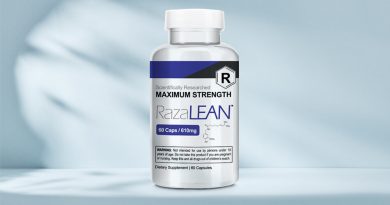How to Deal with Edema in Legs
How to deal with edema in your legs:
1. Initially, try to rest and avoid strenuous activity.
2. Keep a consistent temperature and humidity level in your environment.
3. Apply pressure to the swollen area using cold packs or ice packs.
4. Elevate your legs above your heart if possible.
How to Deal with Edema in Legs
There are a few things you can do to treat edema in your legs. If the edema is mild, you may only need rest and fluids. If the edema is more severe, you may need medication or surgery.
Here are some tips to help you deal with edema:
-Drink plenty of fluids to prevent dehydration. Fluids will help reduce the swelling and inflammation in your legs. You can drink water, juice, orsports drinks. Avoid alcohol, caffeine, and carbonated beverages because they will make the swelling worse.
-Take ibuprofen (such as Advil) to relieve pain and reduce inflammation. Ibuprofen can be taken orally or applied to the skin. Do not take ibuprofen if you are pregnant or breastfeeding.
-If the edema is severe, your doctor may prescribe antibiotics or an anti-inflammatory medication such as celecoxib (Celebrex). Surgery may also be necessary if the edema is caused by a serious medical condition such as cancer.
How to Reduce the Amount of Edema in Legs
If you are experiencing swelling in your legs, there are a few things you can do to help reduce the amount of edema.
First, drink plenty of fluids to stay hydrated. This will help to flush out any toxins that may be causing the swelling. Additionally, make sure you are getting enough rest and exercise. If you are not getting the proper amount of exercise, your muscles will become dilated and your body will produce more fluid. Finally, make sure to take ibuprofen or other pain relievers as needed if the swelling is severe.
Home Remedies for Edema in Legs
Edema is swelling caused by an accumulation of fluid in the tissues. It can occur as a result of a number of conditions, such as congestive heart failure, cirrhosis of the liver, or renal failure. In most cases, edema will disappear on its own after a few days. However, if it persists or worsens, you may need to seek medical attention.
There are many home remedies for edema that you can try at home. Here are some tips:
1. Increase fluids and fiber intake: Drink plenty of fluids and increase your intake of fiber-rich foods. Fiber helps to remove excess fluid from the body and can be found in fruits, vegetables, whole grains, and legumes.
2. Take ibuprofen: Take ibuprofen for pain relief if needed. Ibuprofen is a mild anti-inflammatory drug that can help to reduce swelling and inflammation.
3. Apply ice packs: Apply ice packs to the legs for relief. Ice packs can help to reduce inflammation and swelling and improve blood circulation in the area.
4. Elevate the legs: If possible, elevate the legs above your heart level for increased circulation. This will
Treatment Options for Edema in Legs
There are a number of ways to treat edema in the legs, depending on the cause and severity.
Here are some general tips for managing edema:
1. Reduce salt intake. Salt is a main contributor to swelling and water retention in the body, so try to reduce your sodium intake wherever possible. Opt for lower sodium foods, such as canned tomatoes, vegetable broth, and unsalted nuts and seeds. If you do eat high-salt foods, be sure to drink plenty of water to dilute the effect.
2. Elevate your feet. Elevating your feet can help reduce fluid accumulation in the lower legs. You can elevate your feet by using a foot rest or by propping them up on a pillow or folded towel. Make sure to change out the elevated foot bed often to avoid skin irritation.
3. Take over-the-counter medications as prescribed. Many over-the-counter medications, such as ibuprofen (Advil, Motrin), naproxen (Aleve), and celecoxib (Celebrex) can help relieve pain and swelling associated with edema. Talk to your doctor before taking any medication
Conclusion
If you’ve ever noticed your legs swelling up after a long day of standing or walking, then you might be suffering from edema. Edema is a condition in which the body’s cells become swollen and fill up with water, leading to an increase in skin thickness and length as well as an increased number of capillaries. Although it can be uncomfortable and cause fatigue, there are ways to treat edema without resorting to surgery or medication. If you notice that your legs are swelling significantly more than usual, speak to your doctor about what steps you can take to reduce the amount of fluid accumulating in your tissues.




